The Locked up Living Podcast: Surviving and thriving in prisons and other challenging environments
Can institutional culture challenge your mental health? What if your job makes you feel shame, sadness, grief, disgust and fear? What if you are expected not to feel? Or you are expected to be relentlessly competitive? What it’s like to live or work in a prison? Does working with people who commit murder, child abuse and rape affect people who work in prisons and the wider criminal justice system?
How do people survive and thrive when facing significant challenges to our emotional health over a lengthy period? How do we protect ourselves and stay compassionate, loving and trusting? Importantly, how do we find and preserve hope?
Fyodor Dostoevsky wrote that “The degree of civilisation in a society can be judged by entering its prisons”. In this weekly podcast ,your hosts, David Jones (Forensic psychotherapist) and Dr Naomi Murphy (Consultant Clinical & Forensic Psychologist) hope that exploring less visible aspects of prisons will help listeners see that prisons are a window into society and let us see people not only at their worst but also at their best. We feature a rich range of guests sharing snap shots of life in prisons and take a look at hospitals, schools, sport and the police in order to learn from other institutions. We learn about challenges to human integrity and hear important lessons and heart-warming stories about survival and growth when facing adversity in harsh places. We hope that sharing our conversations can help you make changes to your own relationship with institutions that might challenge your emotional health and well-being.
Follow and connect with us and give us feedback. Let us know what you think works, and also what doesn’t. We want you to look forward to the podcast each week. We’ll also be extremely grateful for any reviews that you give us. A simple star or two or a thumbs up will do.
Email: lockedupliving@gmail.com or connect with us on:
Substack: https://lockedupliving.substack.com
Twitter: https://twitter.com/LockedUpLiving
Linkedin: https://www.linkedin.com/in/naomimurphypsychologist/
https://www.linkedin.com/in/david-jones-41910b12/
Insta: https://www.instagram.com/lockedupliving/
Can institutional culture challenge your mental health? What if your job makes you feel shame, sadness, grief, disgust and fear? What if you are expected not to feel? Or you are expected to be relentlessly competitive? What it’s like to live or work in a prison? Does working with people who commit murder, child abuse and rape affect people who work in prisons and the wider criminal justice system?
How do people survive and thrive when facing significant challenges to our emotional health over a lengthy period? How do we protect ourselves and stay compassionate, loving and trusting? Importantly, how do we find and preserve hope?
Fyodor Dostoevsky wrote that “The degree of civilisation in a society can be judged by entering its prisons”. In this weekly podcast ,your hosts, David Jones (Forensic psychotherapist) and Dr Naomi Murphy (Consultant Clinical & Forensic Psychologist) hope that exploring less visible aspects of prisons will help listeners see that prisons are a window into society and let us see people not only at their worst but also at their best. We feature a rich range of guests sharing snap shots of life in prisons and take a look at hospitals, schools, sport and the police in order to learn from other institutions. We learn about challenges to human integrity and hear important lessons and heart-warming stories about survival and growth when facing adversity in harsh places. We hope that sharing our conversations can help you make changes to your own relationship with institutions that might challenge your emotional health and well-being.
Follow and connect with us and give us feedback. Let us know what you think works, and also what doesn’t. We want you to look forward to the podcast each week. We’ll also be extremely grateful for any reviews that you give us. A simple star or two or a thumbs up will do.
Email: lockedupliving@gmail.com or connect with us on:
Substack: https://lockedupliving.substack.com
Twitter: https://twitter.com/LockedUpLiving
Linkedin: https://www.linkedin.com/in/naomimurphypsychologist/
https://www.linkedin.com/in/david-jones-41910b12/
Insta: https://www.instagram.com/lockedupliving/
Episodes

Wednesday Jun 04, 2025
Menendez brothers resentensing special.
Wednesday Jun 04, 2025
Wednesday Jun 04, 2025
summaryThis 'special' conversation between Naomi and David delves into the complex case of the Menendez brothers, who were convicted of murdering their parents in 1993. They have recently been resentenced and potentially be released on parole. The discussion explores the underlying motives behind their actions, the role of media in shaping public perception, the dynamics of family abuse, and the intricacies of the legal proceedings that followed. The speakers reflect on the psychological trauma experienced by the brothers and the complicity of family members, ultimately questioning societal perceptions of abuse and the nature of justice.
takeaways
The Menendez brothers were convicted in 1993 for murdering their parents.
Media portrayal significantly influenced public perception of the case.
Underlying motives for murder often stem from deep psychological trauma.
Family dynamics can complicate perceptions of abuse and victimhood.
The legal proceedings were marked by significant public and media scrutiny.
The role of the mother in the abuse narrative is complex and often overlooked.
Public perception can be swayed by sensationalized media coverage.
The concept of a 'fixed' trial raises questions about justice and fairness.
Understanding trauma is crucial in analyzing violent behavior.
Photos and media representations can distort the reality of personal experiences.

Wednesday Jun 04, 2025
Menendez brothers resentensing special.
Wednesday Jun 04, 2025
Wednesday Jun 04, 2025
summaryThis 'special' conversation between Naomi and David delves into the complex case of the Menendez brothers, who were convicted of murdering their parents in 1993. They have recently been resentenced and potentially be released on parole. The discussion explores the underlying motives behind their actions, the role of media in shaping public perception, the dynamics of family abuse, and the intricacies of the legal proceedings that followed. The speakers reflect on the psychological trauma experienced by the brothers and the complicity of family members, ultimately questioning societal perceptions of abuse and the nature of justice.
takeaways
The Menendez brothers were convicted in 1993 for murdering their parents.
Media portrayal significantly influenced public perception of the case.
Underlying motives for murder often stem from deep psychological trauma.
Family dynamics can complicate perceptions of abuse and victimhood.
The legal proceedings were marked by significant public and media scrutiny.
The role of the mother in the abuse narrative is complex and often overlooked.
Public perception can be swayed by sensationalized media coverage.
The concept of a 'fixed' trial raises questions about justice and fairness.
Understanding trauma is crucial in analyzing violent behavior.
Photos and media representations can distort the reality of personal experiences.

Wednesday Jun 04, 2025
Wednesday Jun 04, 2025
Episode Summary:
In this episode, hosts David Jones and Naomi Murphy meet with Ariella Steinhorn, a writer and media entrepreneur whose work focuses on relationship dynamics and the abuse of power. Ariella shares her journey from founding the whistleblower platform Lioness to her current project, Nonlinear Love, which explores the complexities of dating, relationships, and breakups. The conversation delves into the impact of non-disclosure agreements (NDAs) on personal narratives, the importance of storytelling, and how joy can be found amidst challenging work.
Key Topics Discussed:- The concept of Nonlinear Love and its mission to share diverse stories about relationships without oversimplifying them. - Ariella's background in working with whistleblowers and the significance of giving a voice to those silenced by NDAs. - The challenges of monetizing storytelling platforms and the evolution of Ariella's projects. - The role of joy and self-care in navigating heavy topics related to power dynamics and personal experiences. - Insights into the differences in perspectives between individuals in relationships and how those perspectives shape their narratives.
Bio: Ariella Steinhorn is a writer and media entrepreneur whose work focuses on relationship dynamics and the abuse of power. She founded the whistleblower platform Lioness and currently runs a storytelling company called Superposition. Her personal writing has been featured in prominent publications such as the New York Times, Slate, and Business Insider.
https://www.nonlinearlove.com/about
@asteinhorn

Wednesday Jun 04, 2025
Wednesday Jun 04, 2025
Episode Summary:
In this episode, hosts David Jones and Naomi Murphy meet with Ariella Steinhorn, a writer and media entrepreneur whose work focuses on relationship dynamics and the abuse of power. Ariella shares her journey from founding the whistleblower platform Lioness to her current project, Nonlinear Love, which explores the complexities of dating, relationships, and breakups. The conversation delves into the impact of non-disclosure agreements (NDAs) on personal narratives, the importance of storytelling, and how joy can be found amidst challenging work.
Key Topics Discussed:- The concept of Nonlinear Love and its mission to share diverse stories about relationships without oversimplifying them. - Ariella's background in working with whistleblowers and the significance of giving a voice to those silenced by NDAs. - The challenges of monetizing storytelling platforms and the evolution of Ariella's projects. - The role of joy and self-care in navigating heavy topics related to power dynamics and personal experiences. - Insights into the differences in perspectives between individuals in relationships and how those perspectives shape their narratives.
Bio: Ariella Steinhorn is a writer and media entrepreneur whose work focuses on relationship dynamics and the abuse of power. She founded the whistleblower platform Lioness and currently runs a storytelling company called Superposition. Her personal writing has been featured in prominent publications such as the New York Times, Slate, and Business Insider.
https://www.nonlinearlove.com/about
@asteinhorn

Wednesday May 28, 2025
Gemma Applegarth (Audio) Running with Awareness: The Art of Mindful Running
Wednesday May 28, 2025
Wednesday May 28, 2025
In this episode, Naomi Murphy and David Jones sit down with Gemma Applegarth, an expert in mindfulness and running, to explore the fascinating intersection of these two practices. Gemma shares her insights on what mindfulness truly is, dispels common myths, and discusses how it can enhance our running experience. Whether you're a seasoned runner or just starting out, this episode offers valuable tips on incorporating mindfulness into your routine for improved well-being.
https://www.activemindfulness.org.uk/
Key Topics Discussed
1. What is Mindfulness?- Definition and core principles of mindfulness. - The importance of being present in the moment.
2. Myths About Mindfulness:- Common misconceptions that may prevent people from practicing mindfulness. - Clarifying what mindfulness is and what it is not.
3. Mindfulness in Practice:- Examples of mindfulness techniques and exercises. - Addressing the misconception that mindfulness requires sitting cross-legged.
4. Evidence Base for Mindfulness: - Overview of research supporting the benefits of mindfulness. - Discussion of studies that highlight its effectiveness.
5. Conditions Benefited by Mindfulness: - Various mental and physical health conditions that mindfulness can help alleviate.
6. Mindfulness and Running: - Gemma's personal journey of discovering how mindfulness complements running. - The benefits of combining these two practices.
7. Mindful Running in the NHS: - Gemma's work with the NHS and how she integrates mindful running into her practice. - Success stories and feedback from participants.
8. Getting Started with Mindful Running:- Tips for beginners who want to incorporate mindfulness into their running routine. - Addressing the challenges faced by new mindful runners.

Wednesday May 28, 2025
Gemma Applegarth (Video); Running with Awareness: The Art of Mindful Running
Wednesday May 28, 2025
Wednesday May 28, 2025
In this episode, Naomi Murphy and David Jones sit down with Gemma Applegarth, an expert in mindfulness and running, to explore the fascinating intersection of these two practices. Gemma shares her insights on what mindfulness truly is, dispels common myths, and discusses how it can enhance our running experience. Whether you're a seasoned runner or just starting out, this episode offers valuable tips on incorporating mindfulness into your routine for improved well-being.
https://www.activemindfulness.org.uk/
Key Topics Discussed
1. What is Mindfulness?- Definition and core principles of mindfulness. - The importance of being present in the moment.
2. Myths About Mindfulness:- Common misconceptions that may prevent people from practicing mindfulness. - Clarifying what mindfulness is and what it is not.
3. Mindfulness in Practice:- Examples of mindfulness techniques and exercises. - Addressing the misconception that mindfulness requires sitting cross-legged.
4. Evidence Base for Mindfulness: - Overview of research supporting the benefits of mindfulness. - Discussion of studies that highlight its effectiveness.
5. Conditions Benefited by Mindfulness: - Various mental and physical health conditions that mindfulness can help alleviate.
6. Mindfulness and Running: - Gemma's personal journey of discovering how mindfulness complements running. - The benefits of combining these two practices.
7. Mindful Running in the NHS: - Gemma's work with the NHS and how she integrates mindful running into her practice. - Success stories and feedback from participants.
8. Getting Started with Mindful Running:- Tips for beginners who want to incorporate mindfulness into their running routine. - Addressing the challenges faced by new mindful runners.

Wednesday May 21, 2025
Victoria Pagan (Audio); The Ethics of Secrecy: NDAs and Accountability
Wednesday May 21, 2025
Wednesday May 21, 2025
Victoria Pagan is a senior lecturer at Newcastle University and she researches how knowledge is used and violated alongside morality and ethics. She explores tensions between secrecy and transparency and the use of non-disclosure agreements when misused to silence those with less power.
keywords
Non-Disclosure Agreements, NDAs, organizational behavior, ethics, power dynamics, silencing, victim support, legal perspective, moral perspective, workplace misconduct
summary
In this conversation, Victoria discusses, with David and Naomi, the implications of non-disclosure agreements (NDAs) in various organizational contexts, particularly focusing on their misuse to silence victims of misconduct. She explores the tension between secrecy and transparency, the moral versus legal perspectives on NDAs, and the psychological impact on individuals who are bound by these agreements. The discussion also highlights the power dynamics at play, particularly regarding gender, and emphasizes the importance of finding ways for victims to share their stories safely. Ultimately, Victoria advocates for a more supportive and accountable organizational culture that prioritizes the voices of the marginalized.
takeaways
NDAs can be used to silence victims of misconduct.
The misuse of NDAs raises ethical concerns in organizations.
Power dynamics often dictate who gets silenced.
Victims may feel they cannot speak out due to fear of disbelief.
Legal protections for victims are often inadequate.
The language surrounding NDAs can be deeply impactful.
Organizations need to foster a culture of accountability.
Restorative justice offers a potential path forward.
Sharing stories can be a powerful form of healing.

Wednesday May 21, 2025
Victoria Pagan (Video); • The Ethics of Secrecy: NDAs and Accountability
Wednesday May 21, 2025
Wednesday May 21, 2025
Victoria Pagan is a senior lecturer at Newcastle University and she researches how knowledge is used and violated alongside morality and ethics. She explores tensions between secrecy and transparency and the use of non-disclosure agreements when misused to silence those with less power.
keywords
Non-Disclosure Agreements, NDAs, organizational behavior, ethics, power dynamics, silencing, victim support, legal perspective, moral perspective, workplace misconduct
summary
In this conversation, Victoria discusses the implications of non-disclosure agreements (NDAs) in various organizational contexts, particularly focusing on their misuse to silence victims of misconduct. She explores the tension between secrecy and transparency, the moral versus legal perspectives on NDAs, and the psychological impact on individuals who are bound by these agreements. The discussion also highlights the power dynamics at play, particularly regarding gender, and emphasizes the importance of finding ways for victims to share their stories safely. Ultimately, Victoria advocates for a more supportive and accountable organizational culture that prioritizes the voices of the marginalized.
takeaways
NDAs can be used to silence victims of misconduct.
The misuse of NDAs raises ethical concerns in organizations.
Power dynamics often dictate who gets silenced.
Victims may feel they cannot speak out due to fear of disbelief.
Legal protections for victims are often inadequate.
The language surrounding NDAs can be deeply impactful.
Organizations need to foster a culture of accountability.
Restorative justice offers a potential path forward.
Sharing stories can be a powerful form of healing.
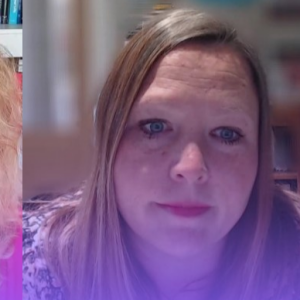
Wednesday May 14, 2025
Joanne Hughes (Audio) Moral Repair: Navigating the Aftermath of Medical Harm
Wednesday May 14, 2025
Wednesday May 14, 2025
Keywords
restorative justice, patient safety, healthcare, grief, medical harm, complaint process, legal journey, systemic change, Jo Hughes, Jasmine, healthcare, restorative justice, patient safety, moral repair, learning culture, shame, grief, accountability, healthcare staff, patient harm
Summary
In this conversation, Jo Hughes shares her profound journey following the tragic death of her daughter, Jasmine, due to medical harm. Jo discusses her transition from grief to advocacy, emphasizing the importance of restorative practices in healthcare. She highlights the lack of curiosity from medical professionals in the aftermath of her daughter's death, the challenges she faced in navigating the complaint process, and the lengthy legal journey that followed. Jo reflects on the systemic issues within healthcare that prioritize risk management over patient and family needs, while also expressing hope for future improvements in patient safety and care responses. In this conversation, Joanne Hughes discusses the importance of creating a just and learning culture in healthcare, emphasizing the need to understand and learn from events that cause patient harm. She highlights the complexities of healthcare, the fallibility of human beings, and the necessity of transparency and accountability. Hughes introduces the concept of 'Restorative Lens,' a consultancy aimed at applying restorative practices in healthcare settings. She stresses the importance of moral repair and the need to balance learning from harm with the emotional impacts on patients, families, and healthcare staff. The conversation concludes with a call for a deeper understanding of moral injury and the obligations of healthcare systems to address these issues.
Check out these papers that Jo recommends;
https://onlinelibrary.wiley.com/doi/epdf/10.1111/hex.13478
https://www.frontiersin.org/journals/health-services/articles/10.3389/frhs.2024.1473296/full
https://www.researchgate.net/profile/Chris-Marshall-11/publication/335626259_Justice_as_care/links/61ea176ac5e3103375ac7252/Justice-as-care.pdf
Jo is a busy working Mum who lives in Cambridgeshire, where she enjoys walking her two labradors at sunset , releasing the stresses of the day by taking in the wonder of the fenland sky at dusk.
Director of Restorative Lens, Jo provides Restorative Practice Consultancy, Co-design, Facilitation and Training within Healthcare. Jo has a particular interest in Restorative responses to Patient Harm from safety Incidents.
The tragic death of her first child Jasmine in 2011 has inspired this choice of career. While restorative responses to baby and child harm are her passion project, Jo helps healthcare organisations prioritise wellbeing, trust and healthy relations in all activity, supporting staff wellbeing and quality patient care, supporting workplace conflict resolution, restorative leadership and healthy team dynamics as frequently as patient facing restorative work.
Jo is a trustee of the UK Restorative Justice Council, a member of the Restorative Justice All Party Parliamentary Group working group for Restorative Practice in Healthcare, and a member of the International Collaborative for Restorative Initiatives in Healthcare. As co-Founder of the Harmed Patients Alliance, she undertakes pro-bono work aimed at addressing the causes of compounded harm for patients and their families injured by their care, with current focus on development of the Harmed Patient Pathway”

Wednesday May 14, 2025
Joanne Hughes (Video) Moral Repair: Navigating the Aftermath of Medical Harm
Wednesday May 14, 2025
Wednesday May 14, 2025
Keywords
restorative justice, patient safety, healthcare, grief, medical harm, complaint process, legal journey, systemic change, Jo Hughes, Jasmine, healthcare, restorative justice, patient safety, moral repair, learning culture, shame, grief, accountability, healthcare staff, patient harm
Summary
In this conversation, Jo Hughes shares her profound journey following the tragic death of her daughter, Jasmine, due to medical harm. Jo discusses her transition from grief to advocacy, emphasizing the importance of restorative practices in healthcare. She highlights the lack of curiosity from medical professionals in the aftermath of her daughter's death, the challenges she faced in navigating the complaint process, and the lengthy legal journey that followed. Jo reflects on the systemic issues within healthcare that prioritize risk management over patient and family needs, while also expressing hope for future improvements in patient safety and care responses. In this conversation, Joanne Hughes discusses the importance of creating a just and learning culture in healthcare, emphasizing the need to understand and learn from events that cause patient harm. She highlights the complexities of healthcare, the fallibility of human beings, and the necessity of transparency and accountability. Hughes introduces the concept of 'Restorative Lens,' a consultancy aimed at applying restorative practices in healthcare settings. She stresses the importance of moral repair and the need to balance learning from harm with the emotional impacts on patients, families, and healthcare staff. The conversation concludes with a call for a deeper understanding of moral injury and the obligations of healthcare systems to address these issues.
Check out these papers that Jo recommends;
https://onlinelibrary.wiley.com/doi/epdf/10.1111/hex.13478
https://www.frontiersin.org/journals/health-services/articles/10.3389/frhs.2024.1473296/full
https://www.researchgate.net/profile/Chris-Marshall-11/publication/335626259_Justice_as_care/links/61ea176ac5e3103375ac7252/Justice-as-care.pdf
Jo is a busy working Mum who lives in Cambridgeshire, where she enjoys walking her two labradors at sunset , releasing the stresses of the day by taking in the wonder of the fenland sky at dusk.
Director of Restorative Lens, Jo provides Restorative Practice Consultancy, Co-design, Facilitation and Training within Healthcare. Jo has a particular interest in Restorative responses to Patient Harm from safety Incidents.
The tragic death of her first child Jasmine in 2011 has inspired this choice of career. While restorative responses to baby and child harm are her passion project, Jo helps healthcare organisations prioritise wellbeing, trust and healthy relations in all activity, supporting staff wellbeing and quality patient care, supporting workplace conflict resolution, restorative leadership and healthy team dynamics as frequently as patient facing restorative work.
Jo is a trustee of the UK Restorative Justice Council, a member of the Restorative Justice All Party Parliamentary Group working group for Restorative Practice in Healthcare, and a member of the International Collaborative for Restorative Initiatives in Healthcare. As co-Founder of the Harmed Patients Alliance, she undertakes pro-bono work aimed at addressing the causes of compounded harm for patients and their families injured by their care, with current focus on development of the Harmed Patient Pathway”
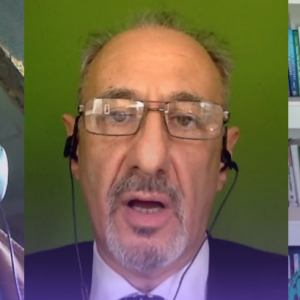
Wednesday May 07, 2025
Wednesday May 07, 2025
Episode Summary:
In this episode of the Locked Up Living podcast, Naomi Murphy and David Jones meet down with Andy Agathangelou, the founder of the Transparency Taskforce. Andy shares his mission to reform the financial sector, emphasizing the importance of transparency in promoting ethical behavior and accountability. The conversation delves into the systemic issues within the finance industry, the risks faced by whistleblowers, and the motivations behind those who choose to speak up against wrongdoing.
Key Topics Discussed:
- Introduction to the Transparency Taskforce and its aims
- The systemic problems in the financial sector and the need for reform
- The significance of transparency as a tool for behavior change
- Personal experiences that led Andy to advocate for financial reform
- The risks and consequences faced by whistleblowers in the finance industry
- The role of organizations like Bank Confidential in supporting whistleblowers
- The debate on whether the UK should adopt a reward system for whistleblowers similar to that in the US
Quotes:
- "Transparency is really powerful. If we can harness the power of transparency, we can drag what's happening in the shadows into the sunlight."
- "People who speak up are often decent human beings who care and know the difference between right and wrong."
Resources Mentioned:
- Transparency Taskforce: https://transparencytaskforce.org/
- Bank Confidential: https://bankconfidential.com/

Wednesday May 07, 2025
Wednesday May 07, 2025
Episode Summary:
In this episode of the Locked Up Living podcast, Naomi Murphy and David Jones meet down with Andy Agathangelou, the founder of the Transparency Taskforce. Andy shares his mission to reform the financial sector, emphasizing the importance of transparency in promoting ethical behavior and accountability. The conversation delves into the systemic issues within the finance industry, the risks faced by whistleblowers, and the motivations behind those who choose to speak up against wrongdoing.
Key Topics Discussed:
- Introduction to the Transparency Taskforce and its aims
- The systemic problems in the financial sector and the need for reform
- The significance of transparency as a tool for behavior change
- Personal experiences that led Andy to advocate for financial reform
- The risks and consequences faced by whistleblowers in the finance industry
- The role of organizations like Bank Confidential in supporting whistleblowers
- The debate on whether the UK should adopt a reward system for whistleblowers similar to that in the US
Quotes:
- "Transparency is really powerful. If we can harness the power of transparency, we can drag what's happening in the shadows into the sunlight."
- "People who speak up are often decent human beings who care and know the difference between right and wrong."
Resources Mentioned:
- Transparency Taskforce: https://transparencytaskforce.org/
- Bank Confidential: https://bankconfidential.com/
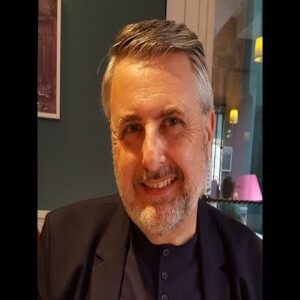
Wednesday Apr 30, 2025
Noel Hadjimichael(Audio); Diversity in Action: Creating Inclusive Communities
Wednesday Apr 30, 2025
Wednesday Apr 30, 2025
Keywords
National Liberal Club, diversity, community engagement, networking, youth empowerment, cultural change, social mobility, inclusion, public policy, civil society
Summary
In this conversation, David and Naomi meet with Cllr Noel Hadjimichael to discuss the importance of building a diverse community using the containing structure of the National Liberal Club and emphasizing the need for engagement, networking, and creating inclusive spaces. Noel shares insights from his personal experiences and highlights the challenges and opportunities faced by the younger generation. The discussion also touches on the significance of authenticity in cultural change and the role of youth in shaping the future.
takeaways
The National Liberal Club serves as a platform for diverse voices.
Creating a community requires intentional engagement and networking.
Inclusivity is essential for fostering meaningful conversations.
Personal experiences shape our understanding of diversity.
Authenticity is key to successful cultural change.
Youth engagement is crucial for social mobility.
Diversity should not be treated as a tick box exercise.
Listening and engaging with different perspectives enriches discussions.
Building connections across different backgrounds fosters understanding.
The younger generation is resilient and eager to contribute.

Wednesday Apr 30, 2025
Noel Hadjimichael (video); Diversity in Action: Creating Inclusive Communities
Wednesday Apr 30, 2025
Wednesday Apr 30, 2025
Keywords
National Liberal Club, diversity, community engagement, networking, youth empowerment, cultural change, social mobility, inclusion, public policy, civil society
Summary
In this conversation, David and Naomi meet with Cllr Noel Hadjimichael to discuss the importance of building a diverse community using the containing structure of the National Liberal Club and emphasizing the need for engagement, networking, and creating inclusive spaces. Noel shares insights from his personal experiences and highlights the challenges and opportunities faced by the younger generation. The discussion also touches on the significance of authenticity in cultural change and the role of youth in shaping the future.
takeaways
The National Liberal Club serves as a platform for diverse voices.
Creating a community requires intentional engagement and networking.
Inclusivity is essential for fostering meaningful conversations.
Personal experiences shape our understanding of diversity.
Authenticity is key to successful cultural change.
Youth engagement is crucial for social mobility.
Diversity should not be treated as a tick box exercise.
Listening and engaging with different perspectives enriches discussions.
Building connections across different backgrounds fosters understanding.
The younger generation is resilient and eager to contribute.
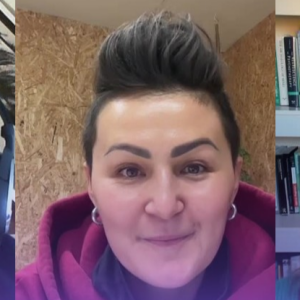
Wednesday Apr 23, 2025
Sane Seven (Audio); Empowering Women Through Portrait Photography
Wednesday Apr 23, 2025
Wednesday Apr 23, 2025
keywordsSane Seven, portrait photography, women empowerment, inclusivity, art advocacy, visual storytelling, gender equality, therapeutic photography, representation, social issues
summaryNaomi Murphy and David Jones met with Sane Seven, an internationally acclaimed portrait photographer and discussed her mission to portray women as multifaceted individuals beyond their physical beauty. She emphasizes the importance of trust and comfort in her photography sessions, often preparing extensively to create a relaxed environment for her subjects. Sane shares her belief in the therapeutic benefits of photography, both for the subjects and for herself as an artist. She advocates for inclusivity and diversity in her work, addressing social issues and gender equality through her art. The conversation highlights the power of visual storytelling and the role of art in healing communities and challenging societal norms.
takeaways
Sane Seven aims to portray women as multifaceted individuals.
Trust and comfort are essential in photography sessions.
Research and preparation are crucial for successful shoots.
Photography can have therapeutic benefits for subjects.
Art can serve as a powerful tool for advocacy.
Inclusivity and diversity are central to Sane's work.
Visual storytelling can evoke strong emotional responses.
Gender equality remains a significant challenge globally.
Social media can bridge cultural gaps among women.
Art has the potential to heal communities and societies.

Wednesday Apr 23, 2025
Sane Seven (Video); Empowering Women Through Portrait Photography
Wednesday Apr 23, 2025
Wednesday Apr 23, 2025
keywordsSane Seven, portrait photography, women empowerment, inclusivity, art advocacy, visual storytelling, gender equality, therapeutic photography, representation, social issues
summaryNaomi Murphy and David Jones met with Sane Seven, an internationally acclaimed portrait photographer and discussed her mission to portray women as multifaceted individuals beyond their physical beauty. She emphasizes the importance of trust and comfort in her photography sessions, often preparing extensively to create a relaxed environment for her subjects. Sane shares her belief in the therapeutic benefits of photography, both for the subjects and for herself as an artist. She advocates for inclusivity and diversity in her work, addressing social issues and gender equality through her art. The conversation highlights the power of visual storytelling and the role of art in healing communities and challenging societal norms.
takeaways
Sane Seven aims to portray women as multifaceted individuals.
Trust and comfort are essential in photography sessions.
Research and preparation are crucial for successful shoots.
Photography can have therapeutic benefits for subjects.
Art can serve as a powerful tool for advocacy.
Inclusivity and diversity are central to Sane's work.
Visual storytelling can evoke strong emotional responses.
Gender equality remains a significant challenge globally.
Social media can bridge cultural gaps among women.
Art has the potential to heal communities and societies.
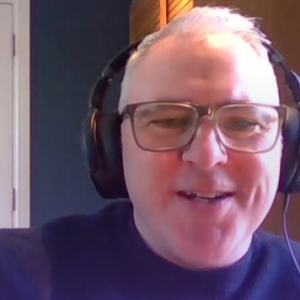
Wednesday Apr 16, 2025
Dr Simon Rogoff (Video); The psychology and complexities of Iconic Fame
Wednesday Apr 16, 2025
Wednesday Apr 16, 2025
Keywords
narcissism, celebrity culture, psychological trauma, iconic fame, emotional health, mentalization based therapy, complex PTSD, personality disorders, childhood influences, societal perceptions, celebrity culture, narcissism, parenting, public perception, mental health, leadership, persona, ethical dilemmas, political spectrum
Summary
In this conversation, clinical psychologist Dr Simon Rogoff discusses his insights into narcissism, trauma, and celebrity culture. He explores the motivations behind iconic fame, the psychological complexities of maintaining a public persona, and the societal implications of our fascination with celebrities. Simon emphasizes the duality of fame, the impact of childhood experiences on personality development, and the often-overlooked emotional vulnerabilities of those in the public eye. In this conversation, Dr. Rogoff explores the complex interplay between celebrity culture, narcissism, and public perception. He discusses the implications of parenting styles on future icons, the role of narcissism in transforming talent into celebrity, and the ethical dilemmas faced by mental health professionals when addressing public figures. The dialogue also delves into the shift from character to persona in leadership, the impact of personal tragedy on public figures' believability, and the challenges of navigating ethical considerations surrounding controversial artists.
Takeaways
Simon Rogoff specializes in personality disorders and trauma.
He writes about the intersection of narcissism and celebrity culture.
Iconic fame is often pursued rather than accidental.
Childhood experiences significantly shape future personalities.
Emotional neglect can lead to narcissistic strategies.
Society struggles to reconcile the duality of celebrity personas.
Narcissism can manifest in both admirable and condemnable ways.
Maintaining a public persona requires ongoing psychological work.
The public often idealizes or denigrates celebrities without nuance.
Understanding narcissism can help prevent unwanted behaviors. Raising a star often involves ruthless parenting strategies.
Narcissism can be a necessary trait for celebrity success.
Public tolerance for narcissism has its limits.
Labeling someone as narcissistic can be a defense mechanism.
Mental health professionals face ethical dilemmas with public figures.
The shift from character to persona affects leadership dynamics.
Believability can be compromised after personal tragedy.
Narcissism exists across the political spectrum.
Ethical dilemmas arise when dealing with controversial figures.
Separating the art from the artist is a complex challenge.

Wednesday Apr 16, 2025
Dr Simon Rogoff (Audio); The psychology and complexities of Iconic Fame
Wednesday Apr 16, 2025
Wednesday Apr 16, 2025
Keywords
narcissism, celebrity culture, psychological trauma, iconic fame, emotional health, mentalization based therapy, complex PTSD, personality disorders, childhood influences, societal perceptions, celebrity culture, narcissism, parenting, public perception, mental health, leadership, persona, ethical dilemmas, political spectrum
Summary
In this conversation, clinical psychologist Dr Simon Rogoff discusses his insights into narcissism, trauma, and celebrity culture. He explores the motivations behind iconic fame, the psychological complexities of maintaining a public persona, and the societal implications of our fascination with celebrities. Simon emphasizes the duality of fame, the impact of childhood experiences on personality development, and the often-overlooked emotional vulnerabilities of those in the public eye. In this conversation, Dr. Rogoff explores the complex interplay between celebrity culture, narcissism, and public perception. He discusses the implications of parenting styles on future icons, the role of narcissism in transforming talent into celebrity, and the ethical dilemmas faced by mental health professionals when addressing public figures. The dialogue also delves into the shift from character to persona in leadership, the impact of personal tragedy on public figures' believability, and the challenges of navigating ethical considerations surrounding controversial artists.
Takeaways
Simon Rogoff specializes in personality disorders and trauma.
He writes about the intersection of narcissism and celebrity culture.
Iconic fame is often pursued rather than accidental.
Childhood experiences significantly shape future personalities.
Emotional neglect can lead to narcissistic strategies.
Society struggles to reconcile the duality of celebrity personas.
Narcissism can manifest in both admirable and condemnable ways.
Maintaining a public persona requires ongoing psychological work.
The public often idealizes or denigrates celebrities without nuance.
Understanding narcissism can help prevent unwanted behaviors. Raising a star often involves ruthless parenting strategies.
Narcissism can be a necessary trait for celebrity success.
Public tolerance for narcissism has its limits.
Labeling someone as narcissistic can be a defense mechanism.
Mental health professionals face ethical dilemmas with public figures.
The shift from character to persona affects leadership dynamics.
Believability can be compromised after personal tragedy.
Narcissism exists across the political spectrum.
Ethical dilemmas arise when dealing with controversial figures.
Separating the art from the artist is a complex challenge.

Wednesday Apr 09, 2025
Wednesday Apr 09, 2025
keywords
obedience, authority, genocide, psychology, neuroscience, ethical research, social dynamics, moral dilemmas, justice, trauma
summary
In this conversation, David Jones and Naomi Murphy speak with Emilie Caspar, a social and cognitive neuroscientist, about her research on obedience to authority, particularly in the context of genocide. They discuss the ethical challenges of studying such sensitive topics, the psychological profiles of perpetrators, and the decision-making processes involved in committing atrocities. Emily shares insights from her studies in various countries affected by genocide, highlighting the importance of understanding the social dynamics that lead to obedience and the potential for resilience and resistance among individuals. The conversation also touches on the emotional toll of researching these topics and the significance of role models in shaping moral decisions. Anyone who has come across the work of Stanley Milgram with find this fascinating.
Just Following Orders: Atrocities and the Brain Science of Obedience
https://www.amazon.co.uk/Just-Following-Orders-Atrocities-Obedience/dp/1009385437

Wednesday Apr 09, 2025
Wednesday Apr 09, 2025
keywords
obedience, authority, genocide, psychology, neuroscience, ethical research, social dynamics, moral dilemmas, justice, trauma
summary
In this conversation, David Jones and Naomi Murphy speak with Emilie Caspar, a social and cognitive neuroscientist, about her research on obedience to authority, particularly in the context of genocide. They discuss the ethical challenges of studying such sensitive topics, the psychological profiles of perpetrators, and the decision-making processes involved in committing atrocities. Emily shares insights from her studies in various countries affected by genocide, highlighting the importance of understanding the social dynamics that lead to obedience and the potential for resilience and resistance among individuals. The conversation also touches on the emotional toll of researching these topics and the significance of role models in shaping moral decisions. Anyone who has come across the work of Stanley Milgram with find this fascinating.
Just Following Orders: Atrocities and the Brain Science of Obedience
https://www.amazon.co.uk/Just-Following-Orders-Atrocities-Obedience/dp/1009385437
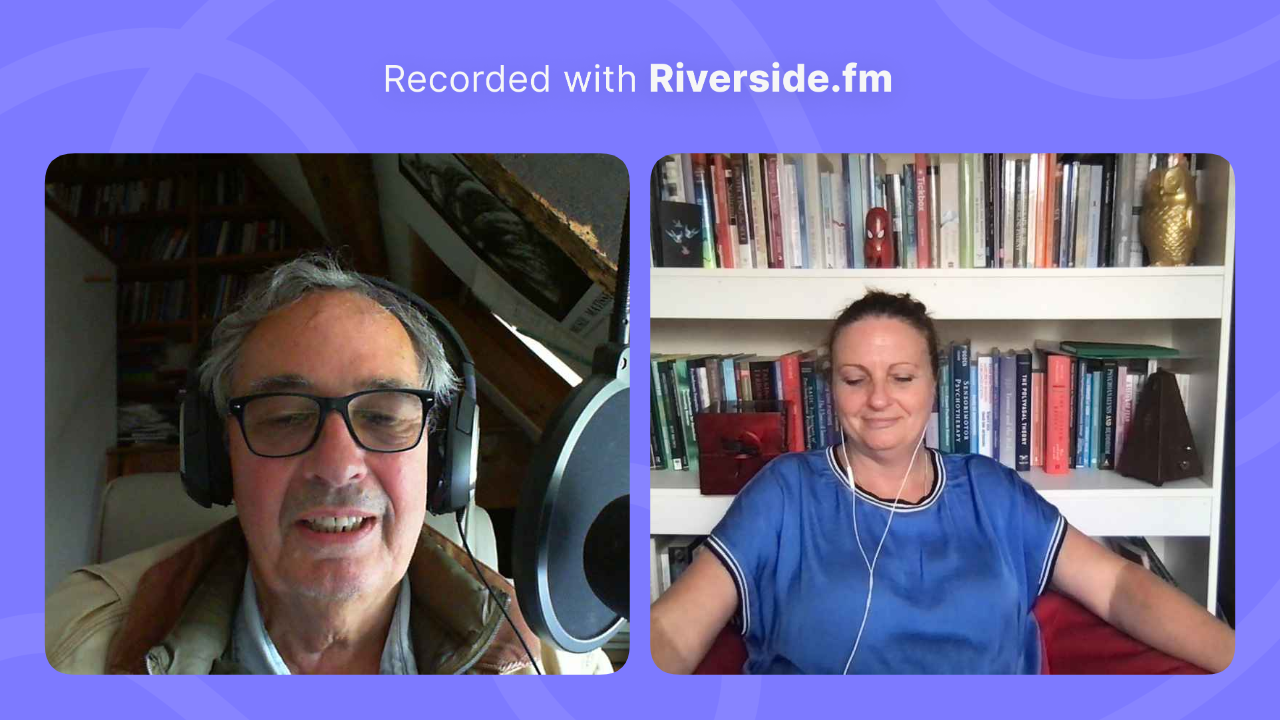
Why 'Locked up Living?'
David is a psychotherapist who has worked leading therapeutic communities in English prisons and in Millfields, an NHS forensic setting in East London. Naomi is a Consultant Clinical and Forensic psychologist who was, for many years, clinical lead at The Fens, a treatment programme for serious offenders at HMP Whitemoor. We had both experienced painful and destructive forces in our work and so we set out to discover what things make a positive difference for staff and service users and what is it that makes things go wrong. Of course we found out that there is no easy answer but there are many fascinating and valuable experiences to be heard.






